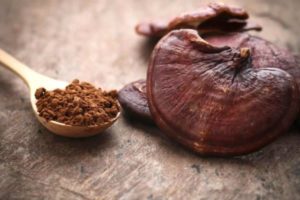
What is Autophagy?
The 2016 Nobel Prize in Physiology/Medicine went to a Japanese scientist by the name of Yoshinori Ohsumi for his discoveries of the mechanisms behind autophagy, a cellular maintenance process which is stimulated by fasting, that is critical in disease resistance, longevity and general body and brain vitality.
Fasting improves cognitive function, reverses aging markers, improves body composition, optimizes digestion and can help to fight/prevent cancer.
As Yoshinori Ohsumi as well as others have stated, autophagy is the process by which cells degrade and then recycle unneeded or dysfunctional proteins and organelles (via lysosomes).
If allowed to accumulate, dysfunctional proteins and organelles sooner or later lead to dysfunctional cells that either die, persist as dysfunctional cells (contributing to poor tissue/organ function) or become cancerous. Suffice it to say, all of these outcomes are in opposition to a youthful, vibrant, high-performing body and brain.
In the brain, upregulation of autophagy is strongly neuroprotective while disruption of autophagy causes neurodegeneration. In the liver, upregulation of autophagy increases lipolysis (fat usage) and insulin sensitivity, while disruption of autophagy leads to prediabetes and metabolic syndrome. Autophagy is actually a process in which your body eats itself or self cannabilism. Yup, you read that right! It is a response to stress.
Exercise is the most prevalent way of inducing autophagy. It puts stress on the body. Working out actually damages your muscles, resulting in microscopic tears that the body immeditely begins working to heal, making the muscles stronger and more resistant to any further “damage” you might put it through. Regular exercise is the most popular way that people unintentionally help their body to cleanse.
Then there’s fasting. The act of not eating food for anywhere from 12 to 36 hours at a time yet making sure to drink plenty of water/fluids. There are a number of physiological mechanisms involved. Intermittent fasting reduces inflammation and oxidative stress, leads to increased numbers and quality of mitochondria, and increases autophagy.
Much of the benefits are also due to lower levels of insulin. The function of insulin is to promote energy storage and the growth of the organism. When insulin increases, fat is stored in fat cells, and other cells take up glucose from the blood. High amounts of carbohydrates and lower insulin sensitivity cause a greater rise in insulin. Insulin increases and stays higher for several hours after eating . The absence of food during fasting lowers insulin. Low-carbohydrate diets cause less of a rise in insulin, so someone on a low-carb diet who then fasts will also see a quicker drop of insulin into the range at which it supports lipolysis and autophagy. Autophagy is suppressed in the presence of insulin resistance. This is probably one of the main mechanisms behind the harmful effects of diabetes and obesity. So autophagy is Promoted by the ketogenic Diet. By reducing carbohydrate intake and increasing fat intake, you cause a shift of energy use from glucose to ketones. This shift mimics the process that occurs during fasting and can lead to the increase of autophagy.



